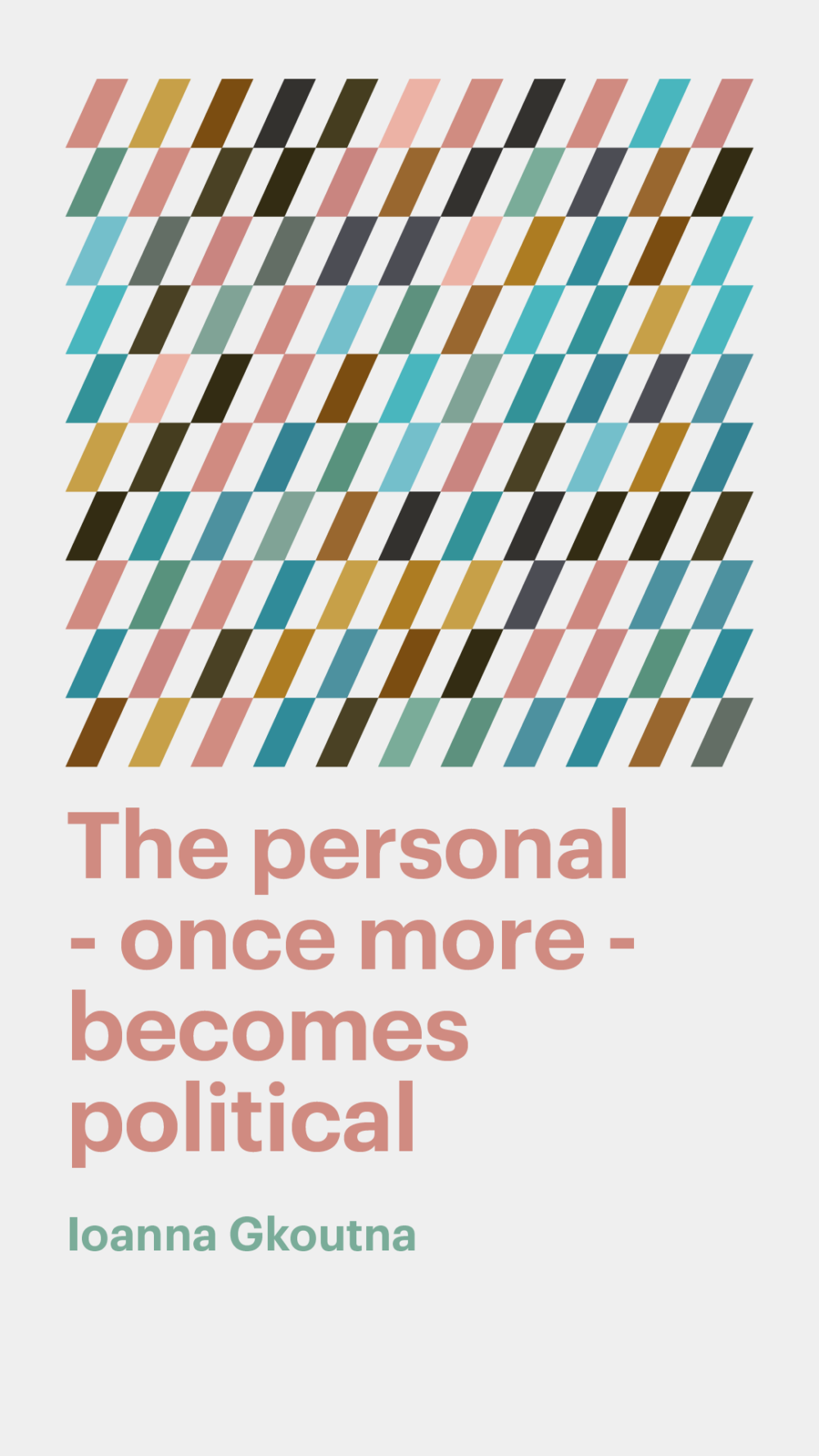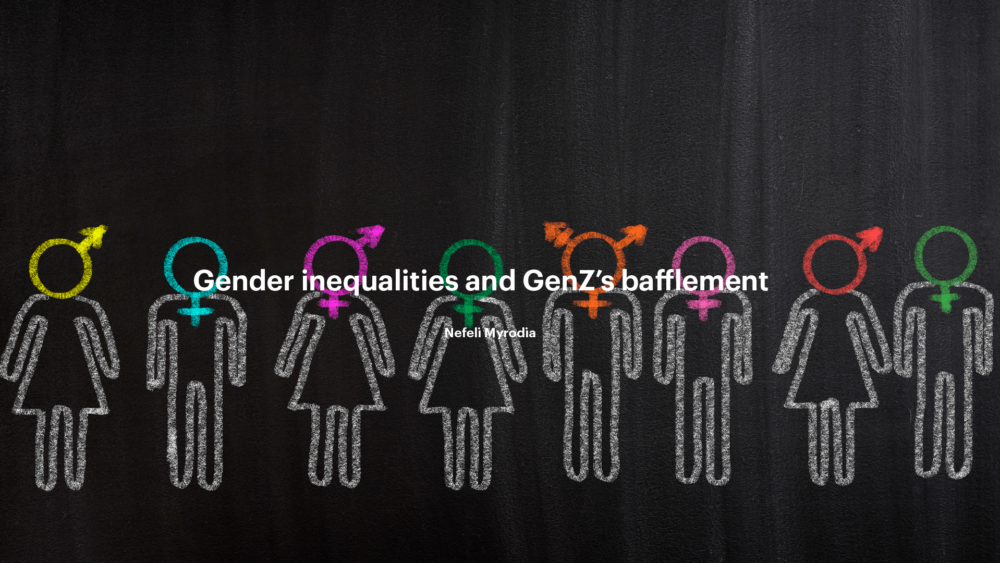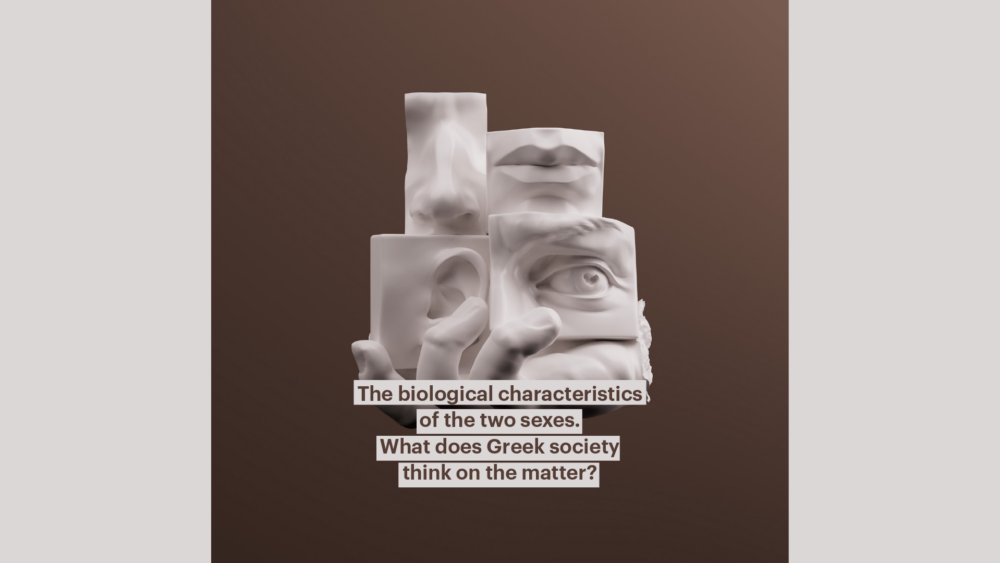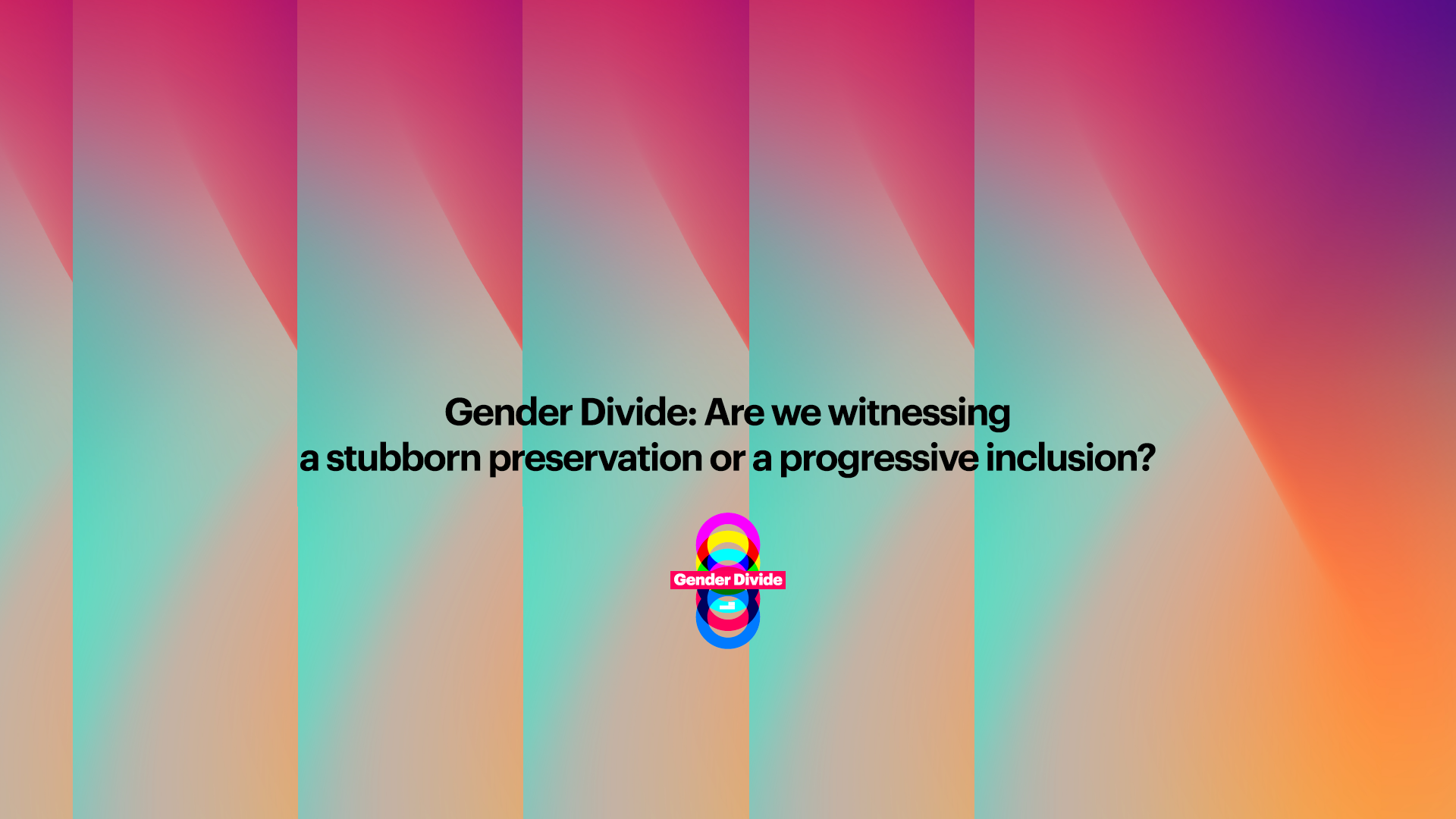
Gender Divide: Are we witnessing a stubborn preservation or a progressive inclusion?
June 2024 finds Greece with a new family law, recently introduced by the government. The bill that passed has weaknesses, but it is also compliant with the EU law that regulates the principle of equality as enshrined in the Greek Constitution, providing the right to marriage for all. Much ink has been spilled about it, and many things have been said both inside and outside the Parliament, but what is always more interesting is the picture that emerges from society, the perceptions and positions adopted by the electorate.
In 2023, in a pretty dense election year, aboutpeople conducted two major quantitative surveys on behalf of Eteron, capturing, among other things, society’s view on same-sex marriage as well as adoption by same-sex couples.
In the first survey, carried out in March 2023 as part of the project “An Insight into the Minds of Voters”, 55.8% said they agreed and somewhat agreed with marriage, while 38.8% said they disagreed and somewhat disagreed. In the same survey, on the issue of adoption, 40.9% responded that they agree and somewhat agree, while 54.4% responded that they disagree and somewhat disagree.
A few months later, in the survey conducted for the Insights of the Greek Far-Right project in October 2023, 56.2% of the participants said that they agree or somewhat agree with same-sex marriage while 38.9% disagreed or somewhat disagreed. Similarly, on the issue of adoption, 37.2% responded that they agree or somewhat agree and 58.6% that they disagree or somewhat disagree.
In aboutpeople’s latest survey for the Gender Divide project, conducted in collaboration with King’s College, 60.1% of respondents said they agree or somewhat agree and 37.4% said they disagree or somewhat disagree with same-sex marriage (Table 1). On the issue of adoption by same-sex couples, 36.7% responded that they agree or somewhat agree and 59.9% responded that they disagree or somewhat disagree (Table 2)
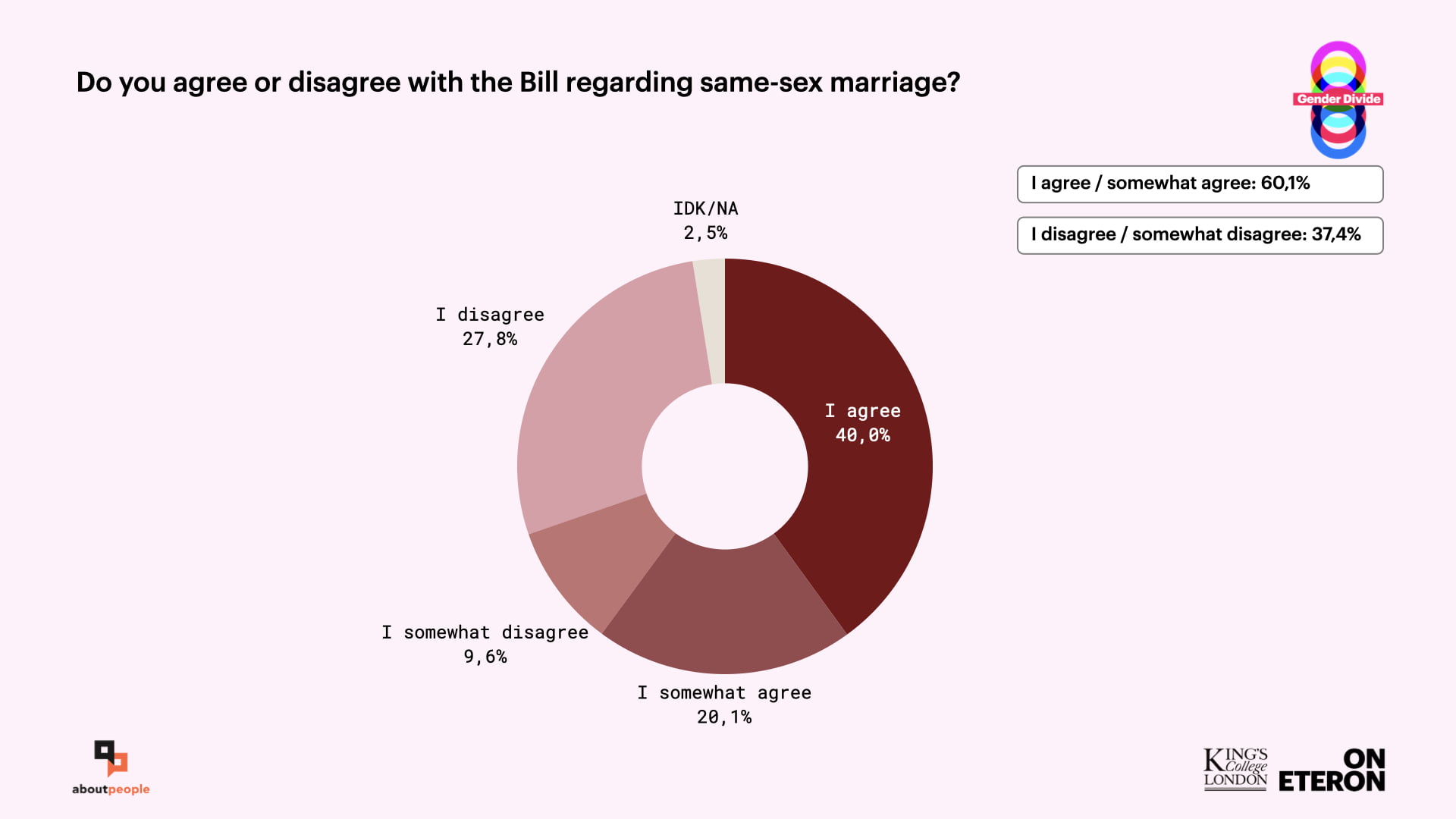
Table 1: Do you agree or disagree with the Bill regarding same-sex marriage?
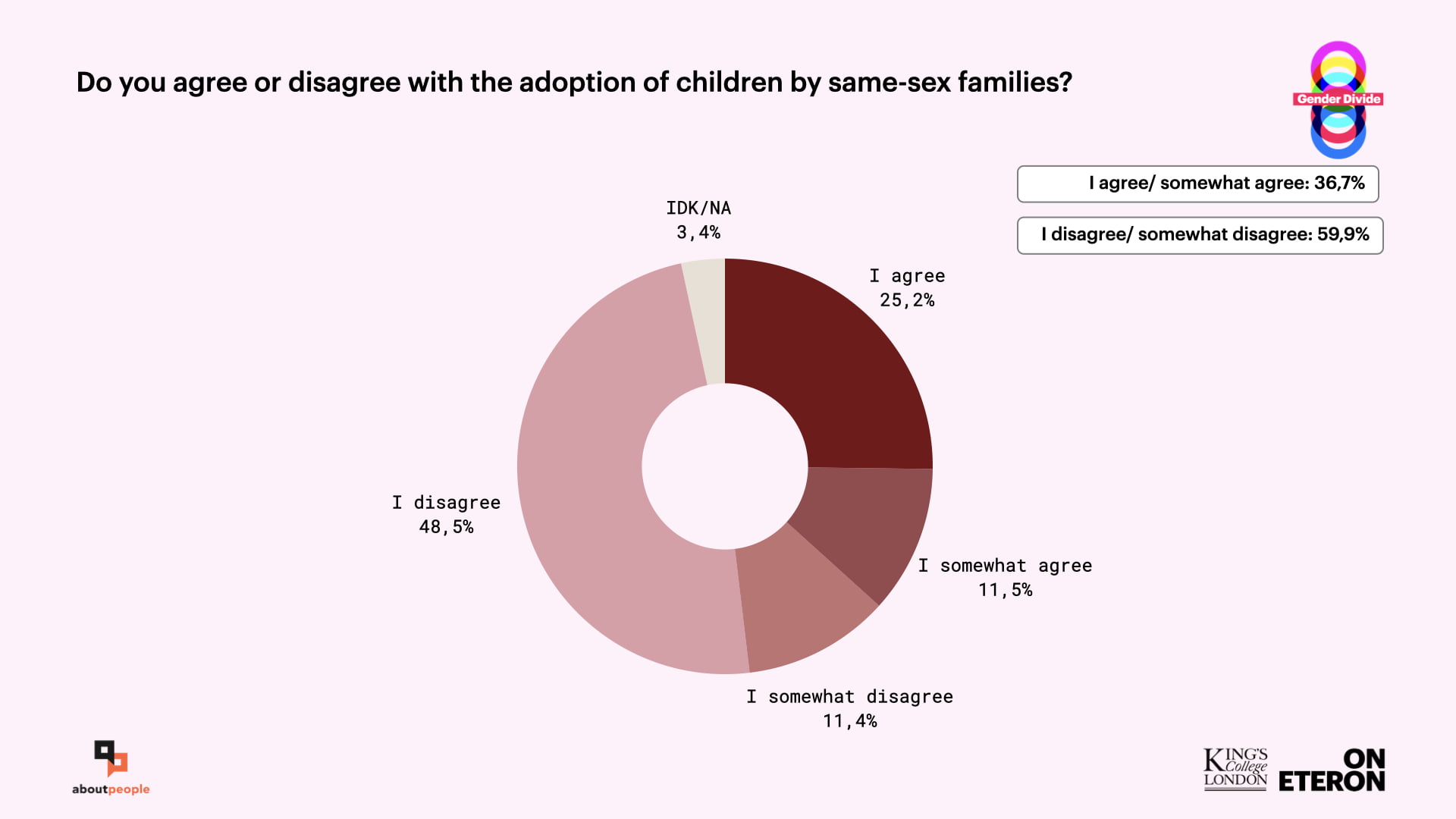
Table 2: Do you agree or disagree with the adoption of children by same-sex families?
Comparing the two surveys mentioned above and that conducted for the Gender Divide project, we can see that the percentage of people agreeing or somewhat agreeing with same-sex marriage is steadily increasing (Table 3). In contrast, on the issue of adoption, we can observe the opposite trend, i.e. the percentage of citizens who disagree and somewhat disagree increases slightly but steadily. That is, on these two topics, people’s perceptions follow a reverse course, with the right to marriage seeming to be horizontally perceived in the collective conscience as an issue of equality that should not be denied to anyone, while on the issue of adoption it seems that we still have a long way to go before it is perceived as a necessary element of equality in a democratic society.
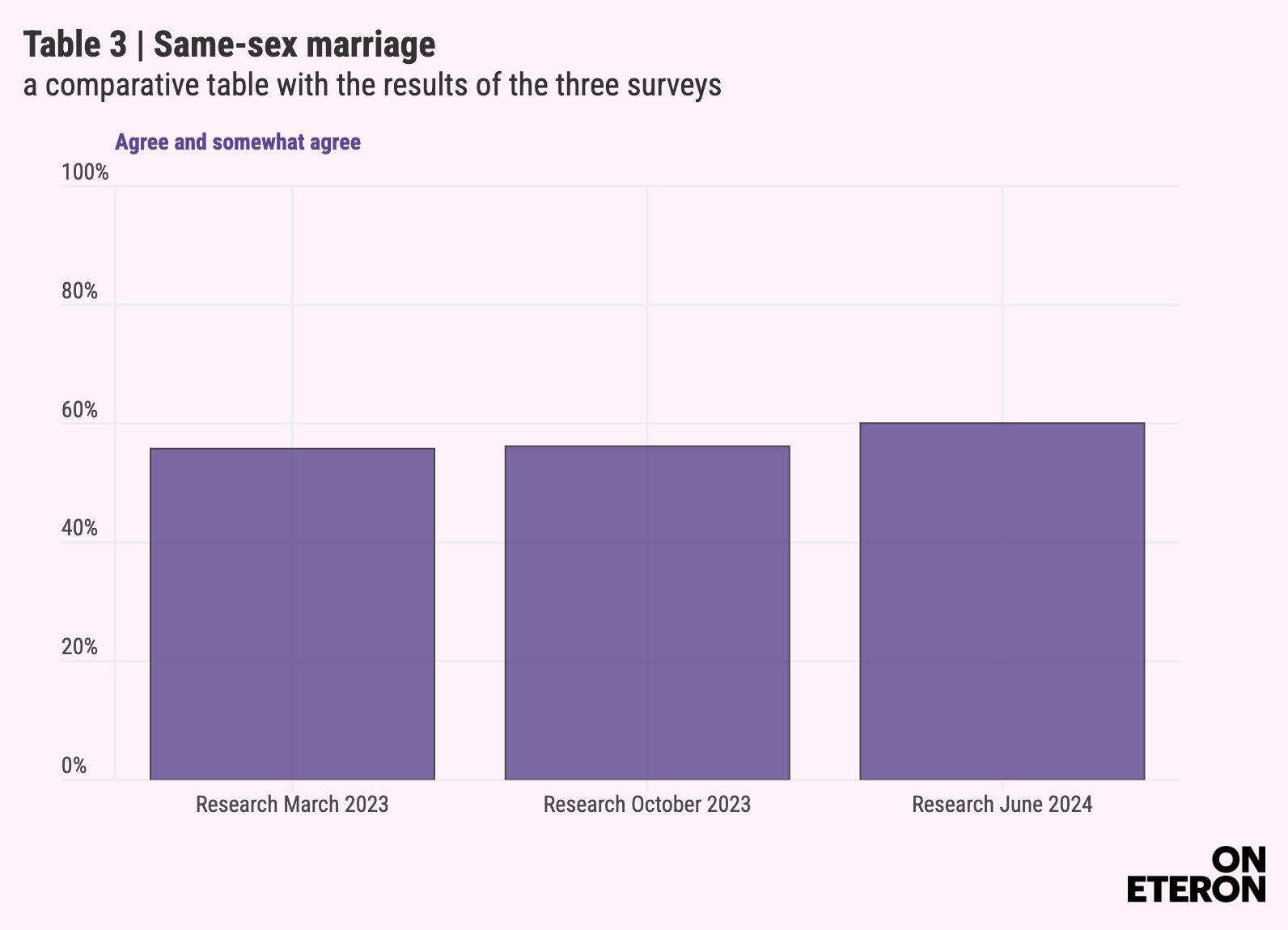
In both questions, but especially in the second one, regarding adoption by same-sex couples, it is worth taking into account the society’s views on the patriarchy: 75.1% of the participants on the Gender Divide project survey replied that they agree or somewhat agree that Greek society is a “patriarchal society” (Table 4), with the crucial variable being that of women, who agree or somewhat agree with that statement at a rate of 81.4% (Table 5).
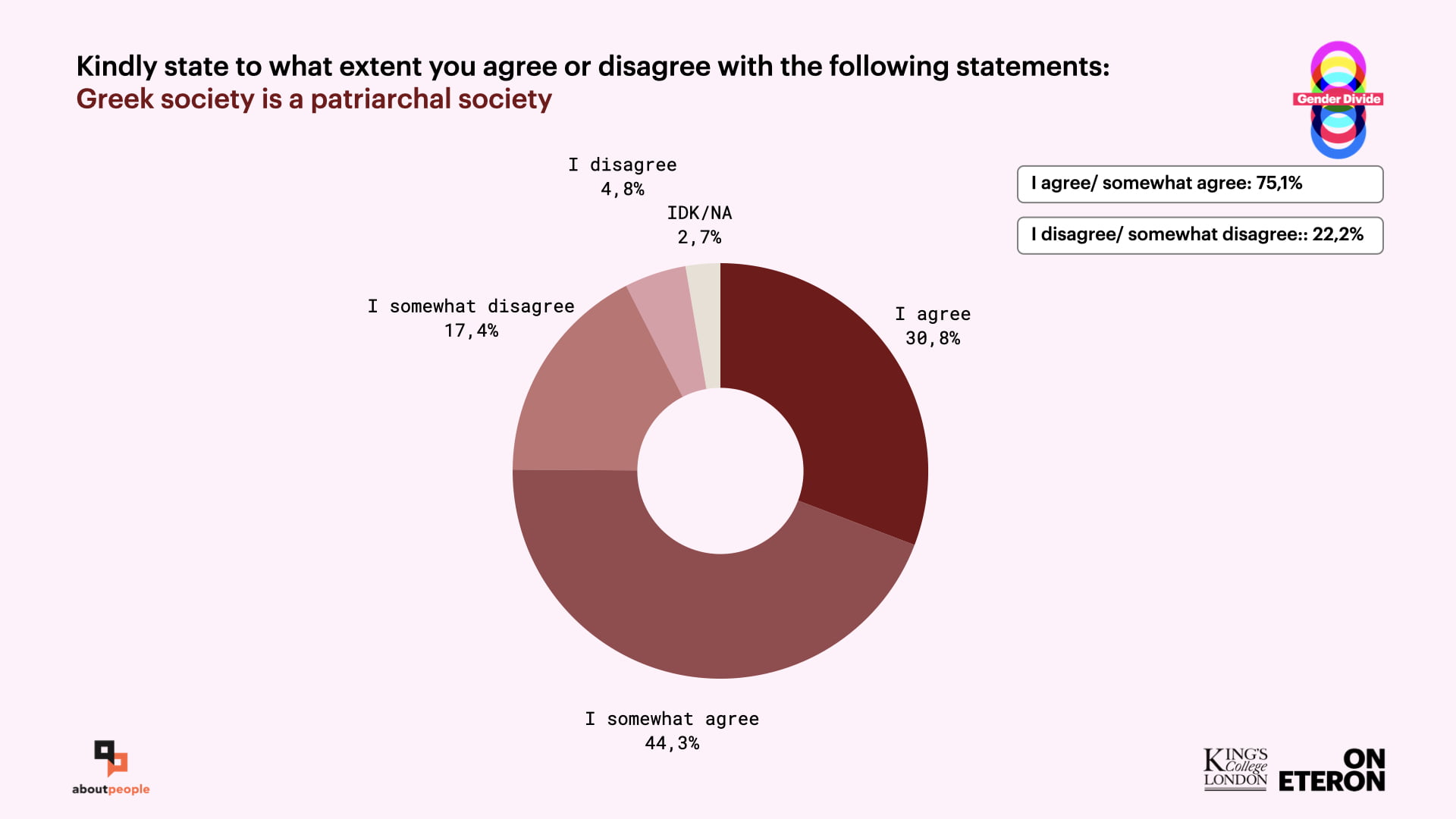
Table 4: Kindly state to what extent you agree or disagree with the following statements:
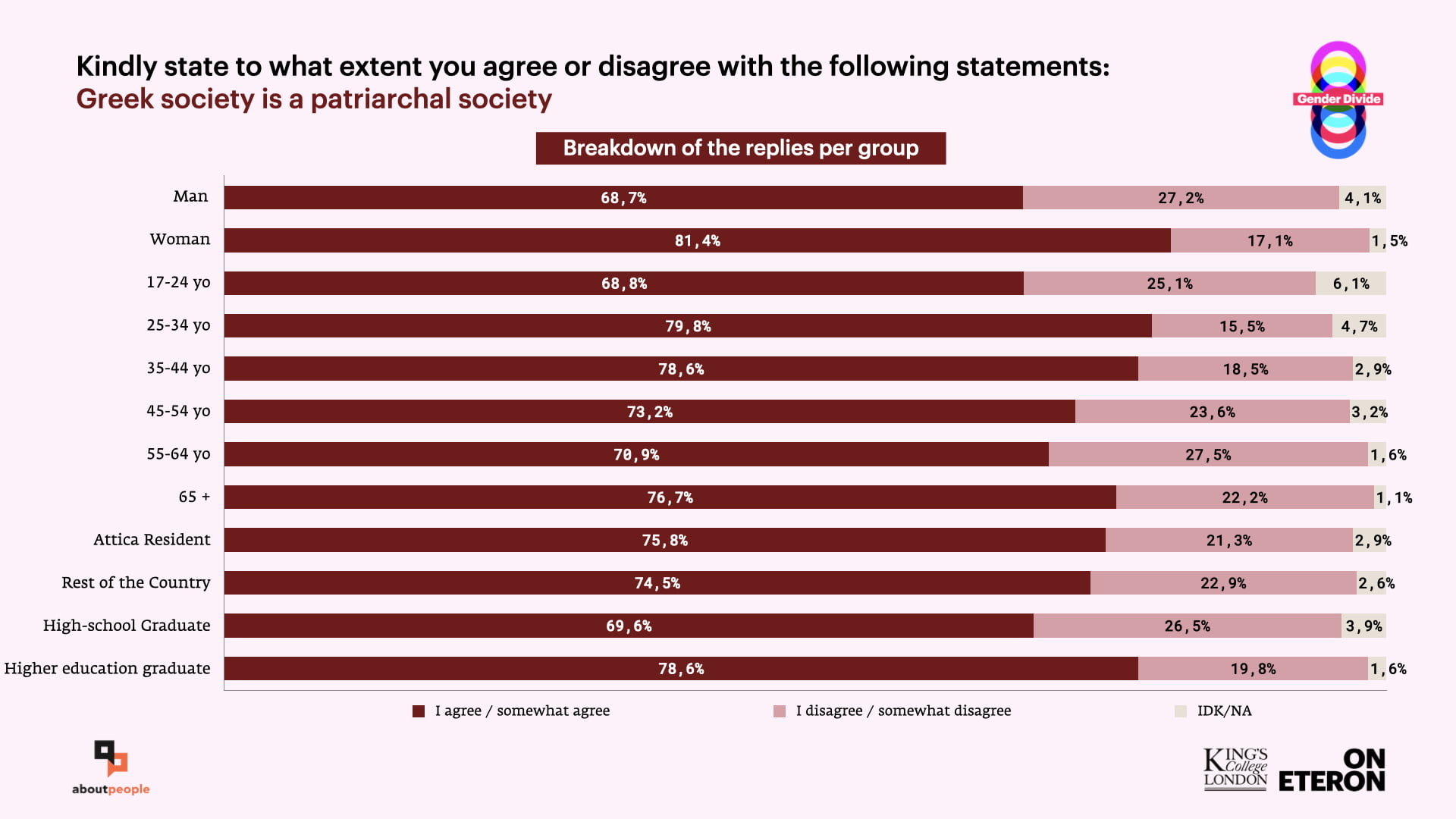
Table 5: Kindly state to what extent you agree or disagree with the following statements:
Based on the Gender Divide project’s survey, but taking into account selected data from both of the above-mentioned surveys from 2023, it seems that Greek society is in a phase of adopting a more inclusive approach to the gender equality issue, although with some bumps and resistance that can be identified in the different intergenerational approaches, among other things. A typical example is that when asked whether in this day and age it is more difficult to embrace ancestral/traditional values when it comes to gender relations, 67.4% agree and somewhat agree with this view (Table 6), with the respective figure soaring to 76.2% among those aged 65 and over (Table 7). The lowest percentage is found among 25-34 year olds (55.5%), but even in that age category the figure is by no means low.
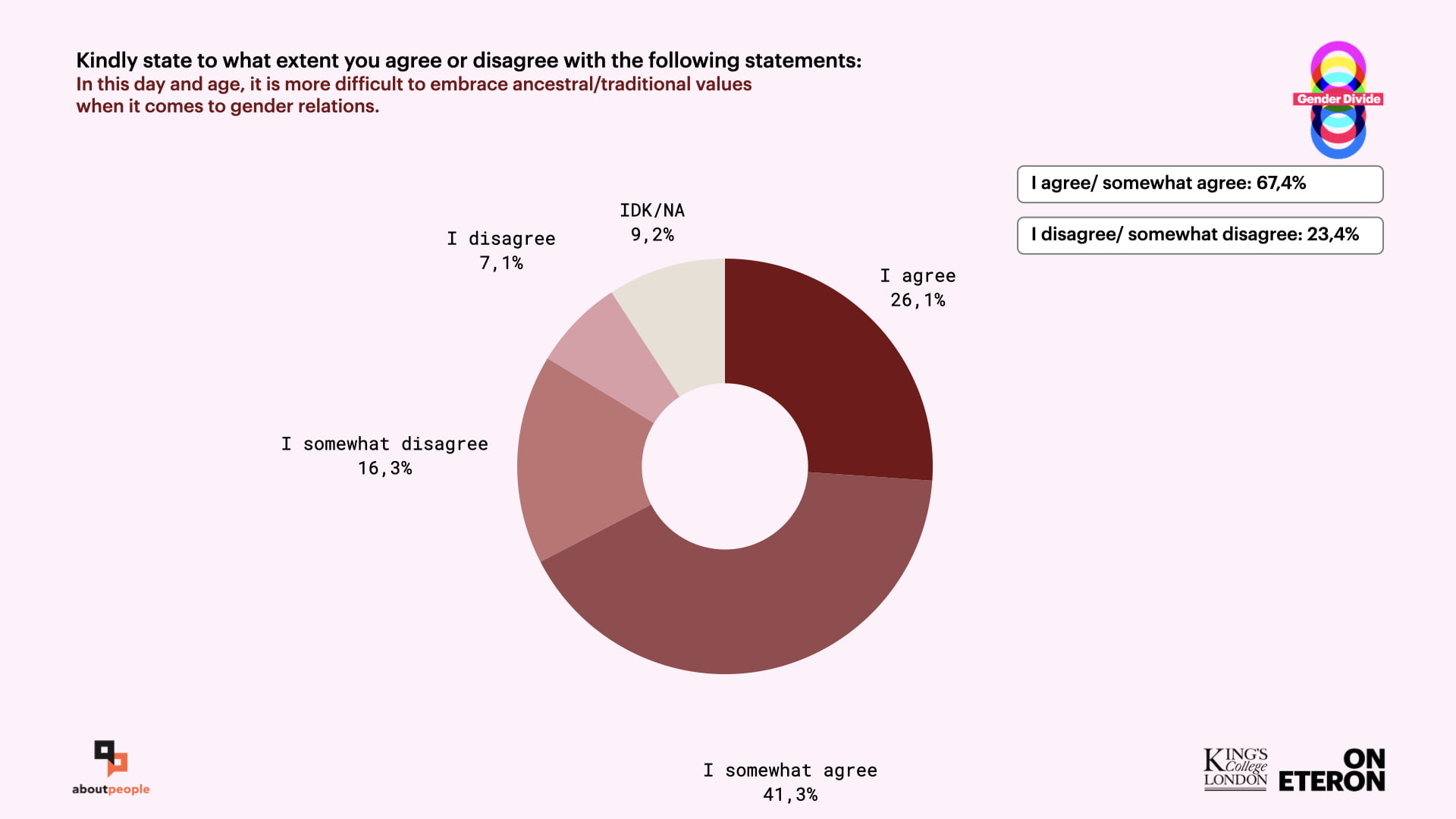
Table 6: Kindly state to what extent you agree or disagree with the following statements:
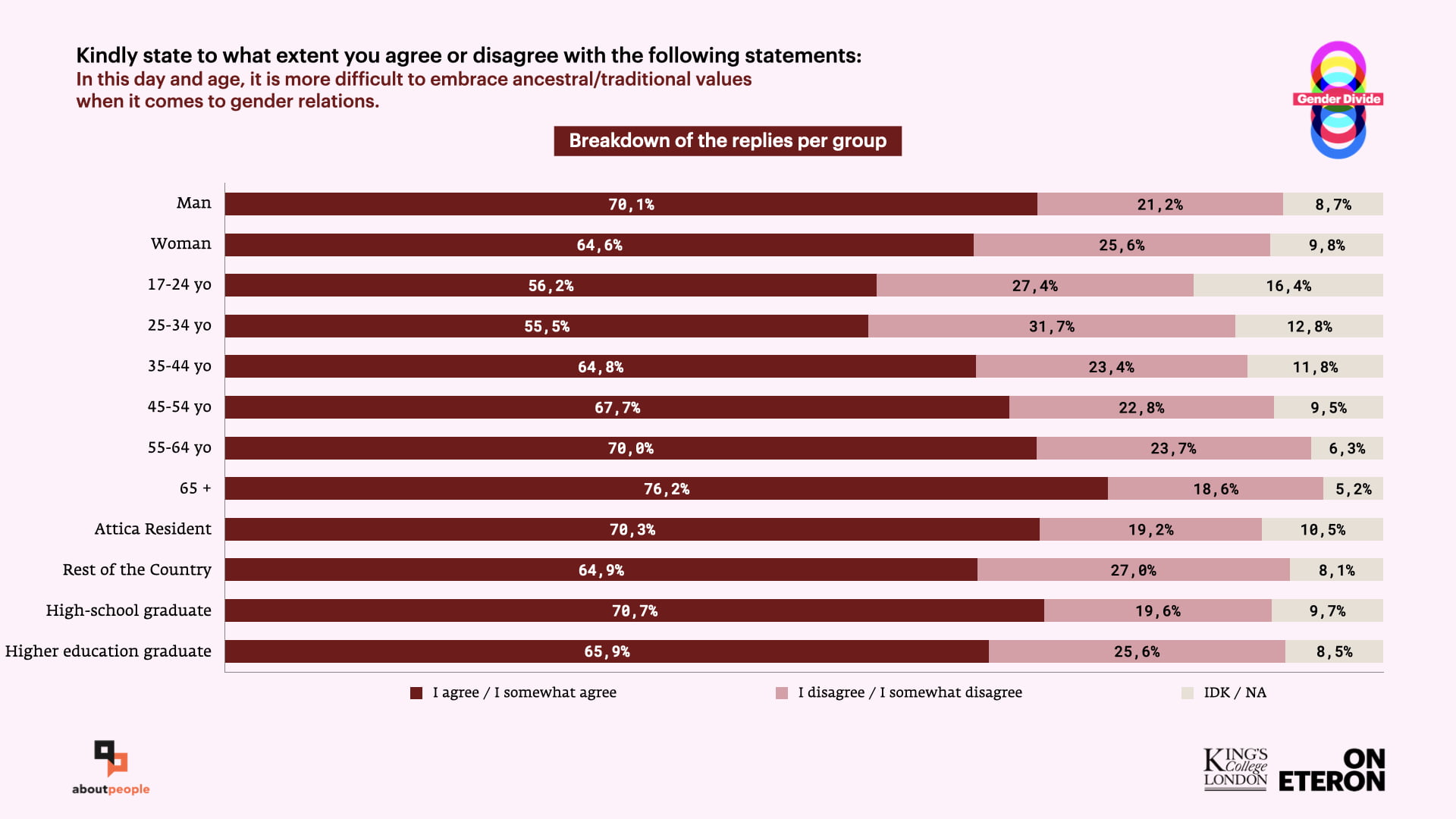
Table 7: Kindly state to what extent you agree or disagree with the following statements:
So, in relation to the above four critical questions included in Eteron and King’s College’s project, it appears that respondents provide a clear and growing support for same-sex marriage but also a clear and growing opposition to adoption by same-sex couples. At the same time, the perception of Greek society as a patriarchal one is clearly dominant across the social corpus, as is the perception that support for ancestral/traditional values regarding gender relations is weakening. The latter could have a double, rather contradictory interpretation: Either that an environment of subversion of dominant, gendered stereotypes is being formed through different ecosystems and entities that present a common or similar narrative (e.g. the media, politics, political parties, the state, etc.), or that there is a parallel direction of support for ancestral values that is being developed, which is in contrast to the inclusionary approach, and thus agreeing with said statement is an expression of an implicit fear of limiting public support for ancestral/traditional values. This second interpretation could maybe explain the increase of reactionary, extreme populist parties’ percentages in the recent European elections, but this remains an assessment that needs to be confirmed or disproved through research, which we shall conduct in the near future.

